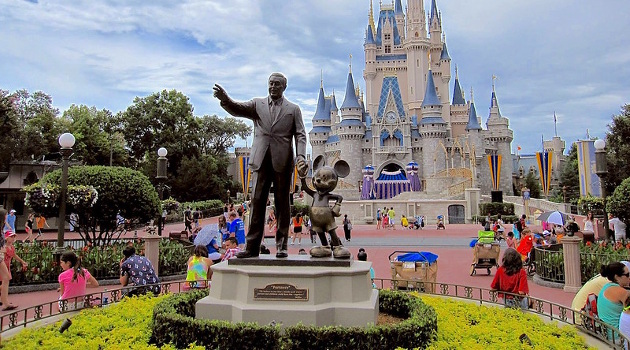Libertarians have a knee-jerk desire to shrink the footprint of government, even advocating for unconventional ideas such as private roads, private mail delivery, private pensions, private money, and private air traffic control. And, as captured by this Reason video, we also like the idea of private cities.
Heck, some libertarians think everything can be privatized.
For today’s column, however, let’s focus on the controversy discussed in the video.
I wrote about this issue twice last year. In the first column, I defended Disney’s privatized governance system (the “Reedy Creek Improvement District”).
As explained in the video, the company had every incentive to operate and maintain its theme park in a safe and efficient manner. The goal was to make money by giving customers the best experience at the best price (a mindset that doesn’t seem to exist when governments are in charge).
In the second column, though, I acknowledged that Disney’s privatized governance system could be considered cronyism because other businesses – including other theme parks – did not get the same treatment.
But I pointed out that there was a simple solution, which was that “private governance could be and should be a tick-the-box exercise. Any and all companies that meet transparent criteria should be allowed to choose a self-governance approach.”
But my preferred approach did not prevail.
Governor Ron DeSantis of Florida has a column in the Wall Street Journal celebrating the demise of Disney’s private governance.
On Monday, I signed the law ending the Walt Disney Co.’s self-governing status over 43 square miles in central Florida… Disney no longer has its own government. …Disney’s special arrangement, which dates to 1967, was an indefensible example of corporate welfare. It provided the company with favorable tax treatment… It exempted Disney from Florida’s building and fire-prevention codes. …For decades, GOP elected officials have campaigned on free-market principles but governed as corporatists—supporting subsidies, tax breaks and legislative carve-outs to confer special benefits on entrenched corporate interests. But policies that benefit corporate America don’t necessarily serve the interests of America’s people and economy.
I fully agree with DeSantis on the downsides of cronyism.
It’s nauseating (and economically harmful) when big business gets in bed with big governance.
I just wish he had picked the tick-the-box strategy for getting rid of favoritism.
Let’s close by looking at something else from Reason. Last July, Scott Shackford defended Disney’s private governance.
DeSantis and Florida’s Republican-controlled legislature took aim at the Reedy Creek Improvement District (RCID), which state lawmakers established in 1967 to give Disney substantial autonomy within the nearly 40 square miles it owns in Orange and Osceola counties. The special district allows Disney to control zoning, construction, infrastructure, emergency services, and taxation to pay for all of it. …While DeSantis and other Florida Republicans seem to view the RCID as an undeserved privilege, it freed Orange and Osceola counties, along with their taxpayers, from responsibility for Disney’s massive park. For instance, Disney pays the Orange County Sheriff’s Office millions of dollars each year for policing services.
It would be nice if this approach had been made universal.
P.S. As explained in the video, DeSantis and other Republicans decided to go after Disney because the company opposed a bill that restricted whether young children could be exposed to issues involving sexual orientation. My defense of Disney’s private governance has nothing to do with that topic (which should be addressed by having school choice so that parents can decide what’s best for their kids).
P.P.S. For those interested in privatized local governance, there are interesting examples in Mexico, South Africa, and Nigeria.
———
Image credit: Travis Wise | CC BY 2.0.



